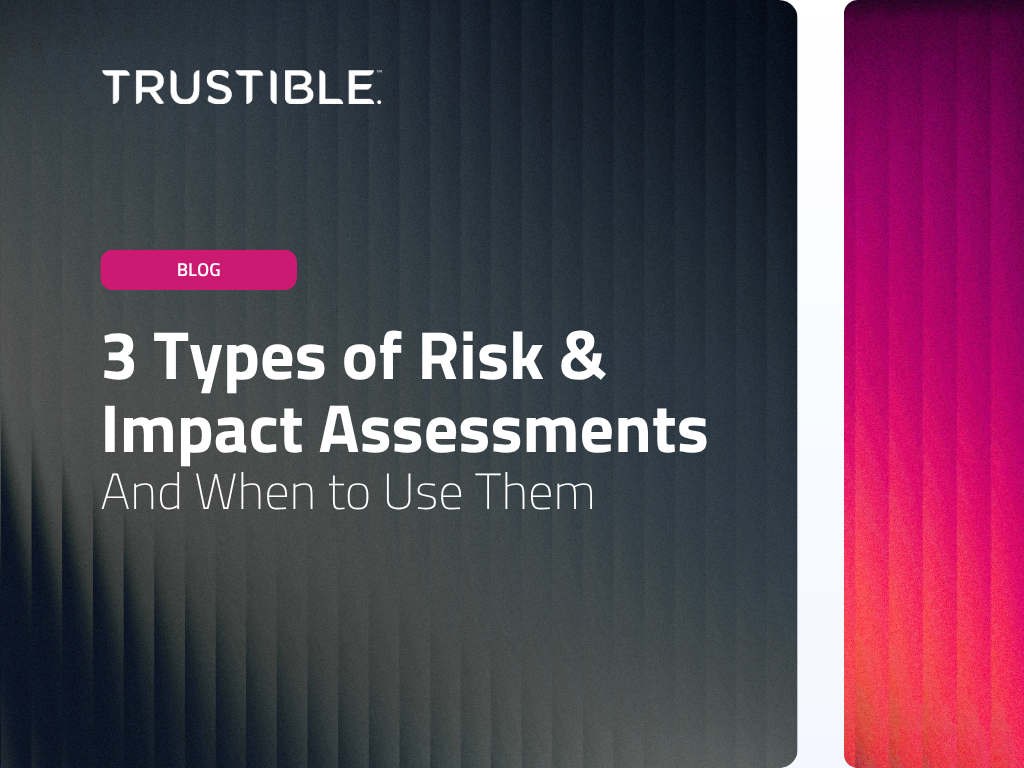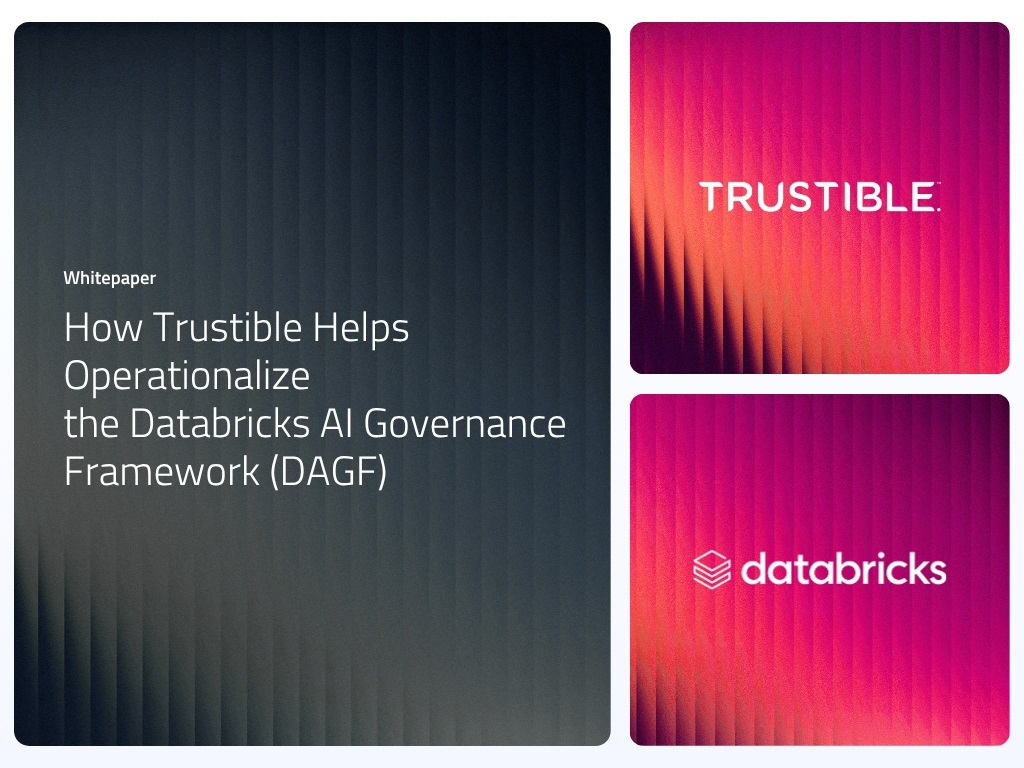Collaboration Enables Streamlined Access to AI Governance Solutions for the Public Sector ARLINGTON, Va., and RESTON, Va. – August 38, 2025 – Trustible, a leader in AI governance, risk and compliance, and Carahsoft Technology Corp., The Trusted Government IT Solutions Provider®, today announced a strategic partnership. Under the agreement, Carahsoft will serve as Trustible’s Master Government […]
Building Trust in Enterprise AI: Insights from Trustible, Schellman, and Databricks
AI is rapidly reshaping the enterprise landscape, but organizations face growing pressure from regulators, stakeholders, and customers to ensure these systems are trustworthy, ethical, and well-governed. To help unpack this evolving space, Trustible, Schellman, and Databricks co-hosted a webinar on how AI governance frameworks, standards, and compliance practices can become strategic tools to accelerate AI adoption.
What Does the Global Pause on AI Laws Mean for AI Governance?
The global AI regulatory landscape has taken a completely new direction in just one year. The US was previously leading the way on AI safety, attempting to work with like minded countries on building a responsible AI ecosystem. Yet since January 2025, the Trump Administration swiftly shifted the narrative by focusing on AI innovation and pausing […]
Trustible Launches Global Partner Program to Unite the AI Governance Ecosystem
New alliance connects technology, services, and channels to embed governance across the AI lifecycle, accelerating safe adoption for organizations Today, I’m excited to announce the global launch of the Trustible Partner Program. This ecosystem is purpose-built to weave AI governance through every stage of the AI lifecycle. Our program unites technology alliances, system integrators, resellers, […]
Everything You Need to Know About the New California Consumer Privacy Act’s Automated Decision-Making Regulations
On July 24, 2025, the California Privacy Protection Agency (CPPA) voted unanimously to finalize rules under the California Consumer Privacy Act (CCPA), as amended by the California Privacy Rights Act. These new rules introduce significant obligations for businesses subject to the CCPA. They impose requirements on the use of automated decision-making technologies (ADMT) and mandate cybersecurity audits and risk assessments. The California Office of Administrative Law must review and approve these rules by around September 5, 2025. Once approved, they will become effective on a phased basis between 2027 and 2030.
3 Types of Risk & Impact Assessments, And When to Use Them
A common requirement in many AI standards, regulations, and best practices is to conduct risk and impact assessments to understand the potential ways AI could malfunction or be misused. By understanding the risks, organizations can prioritize and implement appropriate technical, organizational, and legal mitigation measures. While there are standards for these assessments, such as the […]
What the Trump Administration’s AI Action Plan Means for Enterprises
The Trump Administration released “Winning the AI Race: America’s AI Action Plan” (AI Action Plan) on July 23, 2025. The AI Action plan was published in accordance with the January 2025 Removing Barriers to American Leadership in AI Executive Order. The AI Action Plan proposes approximately 90 policy recommendations within three thematic pillars: Pillar I addresses […]
FAccT Finding: AI Takeaways from ACM FAccT 2025
Anastassia Kornilova is the Director of Machine Learning at Trustible. Anastassia translates research into actionable insights and uses AI to accelerate compliance with regulations. Her notable projects have involved creating the Trustible Model Ratings and AI Policy Analyzer. Previously, she has worked at Snorkel AI developing large-scale machine learning systems, and at FiscalNote developing NLP […]
Navigating The AI Regulatory Minefield: State And Local Themes From Recent Legislation
This article was originally published on Forbes. Click here for the original version. The complex regulatory landscape for artificial intelligence (AI) has become a pressing challenge for businesses. Governments are approaching AI through the same piecemeal lens as other emerging technologies such as autonomous vehicles, ride-sharing, and even data privacy. In the absence of a […]
Trustible Becomes Official Implementation Partner for the Databricks AI Governance Framework (DAGF)
Despite the explosive growth of AI, most enterprises remain unprepared to manage the very real risks that come with its adoption. While the opportunities are vast—from smarter products to more efficient operations—the path to realizing AI’s full potential is fraught with challenges around performance, cybersecurity, privacy, ethics, and legal compliance. Without a strong AI governance […]










